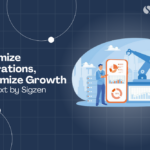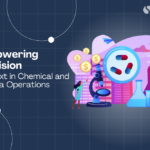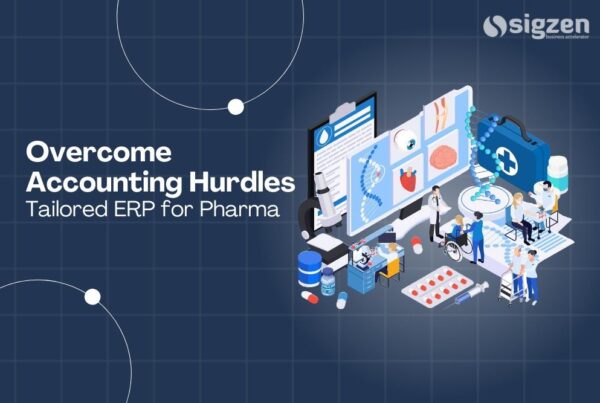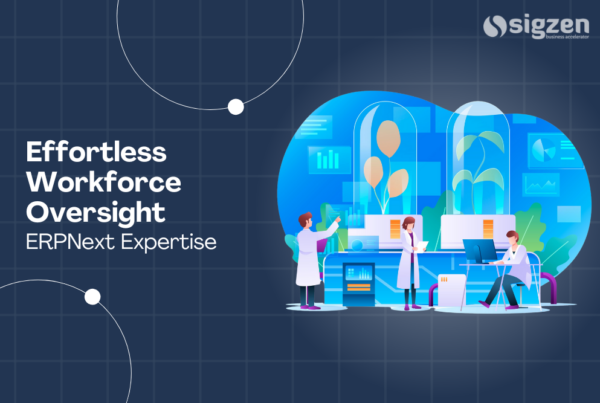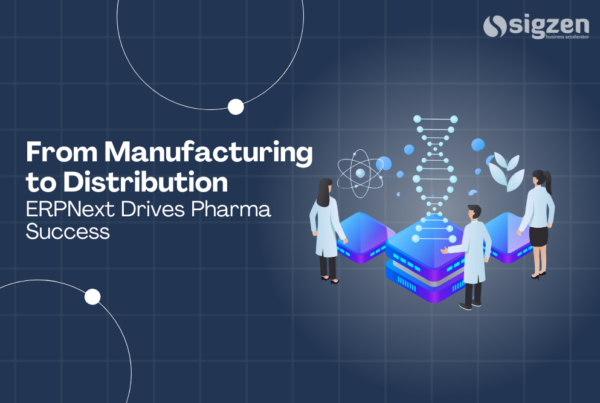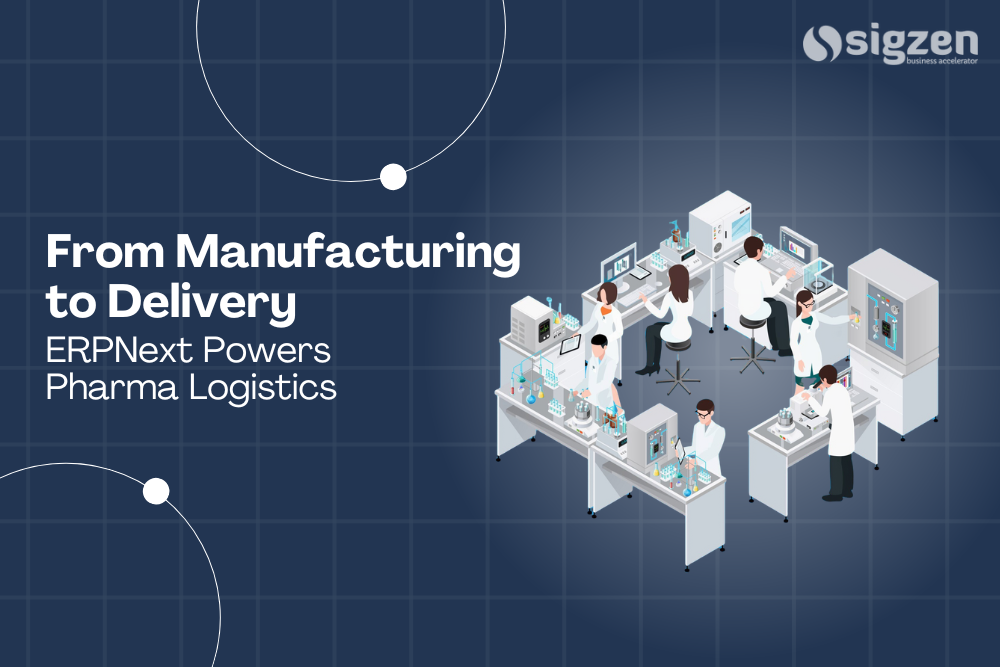
Introduction: Revolutionizing Pharmaceutical Supply Chains with ERPNext
The pharmaceutical industry faces unique challenges in supply chain management, from regulatory compliance and quality assurance to real-time inventory control. Managing these complexities effectively requires robust tools that integrate operations and provide actionable insights. This is where ERP for Pharmaceutical companies becomes a game-changer.
ERPNext, a versatile enterprise resource planning system, offers advanced tools tailored for pharmaceutical supply chains. By integrating inventory, quality control, and logistics into a unified platform, ERPNext simplifies supply chain processes and ensures seamless operations. In this article, we explore how ERPNext enhances supply chain management for pharmaceutical companies, highlighting its key features and ERP benefits for the industry.
Key Challenges in Pharmaceutical Supply Chain Management
1. Stringent Regulatory Compliance
Pharmaceutical supply chains must adhere to strict regulations from organizations such as the FDA, EMA, and WHO. Non-compliance can result in severe penalties, product recalls, and reputational damage.
2. Inventory Complexity
Managing multiple raw materials, including active pharmaceutical ingredients (APIs) and packaging components, requires precise tracking and real-time updates.
3. Quality Assurance
Ensuring consistent quality across the supply chain is critical to meet regulatory standards and customer expectations.
4. Traceability
Pharmaceutical companies must maintain comprehensive records to trace products throughout the supply chain, ensuring transparency and accountability.
5. Cost Management
Reducing operational costs while maintaining high standards of quality and compliance is a constant challenge for pharmaceutical companies.
How ERPNext Addresses These Challenges
1. Regulatory Compliance Made Easy
ERPNext ensures compliance with industry standards through:
- Automated Documentation: Generate audit-ready reports and maintain detailed records of every transaction and operation.
- Regulatory Workflows: Implement predefined workflows to adhere to compliance requirements seamlessly.
- Customizable Quality Checks: Conduct automated quality checks at every stage of the supply chain.
Explore ERPNext’s quality management tools.
2. Real-Time Inventory Management
ERPNext simplifies inventory management by providing real-time visibility and control:
- Multi-Warehouse Tracking: Monitor inventory levels across multiple warehouses and production sites.
- Batch and Serial Number Tracking: Ensure complete traceability of raw materials and finished products.
- Automated Reordering: Set reorder thresholds to prevent stockouts and overstocking.
Learn more about ERPNext’s inventory management capabilities.
3. Streamlined Supply Chain Operations
By integrating every aspect of supply chain management, ERPNext ensures seamless operations:
- Vendor Management: Track vendor performance and manage procurement contracts effectively.
- Demand Forecasting: Use historical data and predictive analytics to plan procurement and production schedules.
- Logistics Integration: Optimize transportation and distribution processes to ensure timely deliveries.
Discover how ERPNext supports supply chain efficiency.
4. Improved Quality Control
Quality assurance is a cornerstone of pharmaceutical supply chains. ERPNext enables:
- Inline Quality Inspections: Conduct quality checks during procurement, production, and distribution.
- Non-Conformance Tracking: Identify and address deviations in real-time.
- Regulatory Reporting: Automate the generation of compliance reports for audits and certifications.
5. Cost Efficiency
By automating and optimizing processes, ERPNext reduces operational costs:
- Minimized Wastage: Track and manage inventory to reduce losses due to expired or unused materials.
- Resource Optimization: Allocate resources effectively across supply chain operations.
- Financial Insights: Use built-in financial tools to track expenses and identify cost-saving opportunities.
Learn more about ERPNext’s financial management features.
ERP Benefits for Pharmaceutical Supply Chains
1. Enhanced Transparency
Real-time data visibility across all supply chain operations ensures transparency and improves decision-making.
2. Increased Efficiency
Automation of manual processes reduces errors, saves time, and enhances productivity.
3. Better Collaboration
ERPNext fosters collaboration among departments, vendors, and distributors by providing a centralized platform for communication and data sharing.
4. Scalable Solutions
Whether for a small pharmaceutical business or a large enterprise, ERPNext scales seamlessly to meet evolving needs.
5. Competitive Advantage
With streamlined operations and improved efficiency, businesses can focus on innovation and customer satisfaction.
Key Features of ERP System Tools in ERPNext
1. Integrated Dashboards
Gain a unified view of supply chain performance with customizable dashboards.
2. Advanced Reporting Tools
Generate detailed reports on inventory, vendor performance, quality control, and financials.
3. Role-Based Access
Enhance data security by assigning user roles and permissions based on responsibilities.
4. Cloud Accessibility
Access ERP features remotely, enabling real-time decision-making from any location.
5. AI-Driven Analytics
Leverage predictive analytics to anticipate demand, identify inefficiencies, and optimize operations.
Real-World Impact: ERPNext in Action
Challenge: A mid-sized pharmaceutical company faced challenges with inventory mismanagement, delayed deliveries, and compliance reporting.
Solution: After implementing ERPNext, the company achieved:
- 30% reduction in inventory holding costs through optimized stock management.
- 40% improvement in delivery times due to streamlined logistics.
- 100% compliance with regulatory standards through automated reporting and quality control.
Request a demo from Sigzen to see how ERPNext can transform your supply chain.
Best Practices for Implementing ERP in Pharmaceutical Supply Chains
- Define Clear Objectives: Identify the specific challenges ERPNext should address, such as inventory tracking or compliance management.
- Engage Stakeholders: Involve all relevant departments, including procurement, quality assurance, and logistics, in the implementation process.
- Ensure Data Accuracy: Clean and organize existing data before migration to the ERP system.
- Provide Training: Equip employees with the skills needed to maximize ERPNext’s capabilities.
- Monitor KPIs: Track key performance indicators, such as inventory turnover and on-time delivery rates, to measure success.
Future Trends in Pharmaceutical Supply Chain Management
1. Blockchain Integration
Enhance traceability and authenticity by integrating blockchain technology into ERP systems.
2. IoT-Driven Insights
Use IoT sensors to monitor inventory conditions, such as temperature and humidity, in real-time.
3. Sustainable Practices
Implement eco-friendly supply chain processes, such as waste reduction and energy-efficient logistics.
4. AI and Machine Learning
Leverage AI-powered analytics to improve demand forecasting and identify supply chain inefficiencies.
Conclusion: Transforming Pharmaceutical Supply Chains with ERPNext
Managing a pharmaceutical supply chain requires precision, transparency, and compliance. ERP for Pharmaceutical companies, such as ERPNext, offers a robust solution to address these challenges. By integrating inventory, quality control, and logistics, ERPNext empowers businesses to streamline operations, reduce costs, and enhance efficiency.
Ready to revolutionize your supply chain? Request a demo from Sigzen today!
